April showers are sure to bring May flowers (and who doesn’t love to see their first lily blossom?), but if you suffer from seasonal allergies, you’re probably dreading those flowers and the pollen that comes along with them.
I’m pretty lucky in that I’ve never actually had to suffer allergies (I do get a little sniffy in the summer for a couple of weeks since I moved, but that doesn’t prove anything). Still, I don’t think that I’m going to remain lucky forever – My dad, the one other person in my family that’s never suffered, was diagnosed with seasonal allergies last year. Just because I’m not a sufferer myself though, doesn’t mean that I don’t know how to help alleviate them. Between my brother and the mister, I’m practically a walking allergy doctor!
Knowing so many seasonal allergy sufferers, there’s been a lot of trial and error in this house when it comes to trying to find some relief. (There’s nothing worse than not being able to do anything for the person trying desperately to sleep beside you at three o’clock in the morning when they can’t breathe.) My heart breaks for those who suffer the sniffling, wheezing, and sneezing that seemingly won’t go away.
Through that trial and error, we’ve found a few essential oils that can help bring some relief. Now, I make no promises that you’re going to use one (or more) of these and you’ll immediately be able to breathe again. Allergies just don’t work that way. But these oils might help ease the congestion enough to help you get a little shut eye, or help you get through your day at work without your head feeling like it’s about to explode.
What Causes Allergies, Anyway?
No one really knows (which makes sense when you think about it. If they did, they’d be able to manufacture a medication that actually worked as opposed to multiples that you just end up wasting money on). Essentially, what it boils down to is your immune system going a little nuts because it’s unable to process the pollen (or grass, or ragweed, or whatever you happen to be allergic to) in the air.
It sucks, and there really isn’t a whole lot you can do about it, but there are definitely steps that you can take to help ward off the symptoms a little, and hopefully the aforementioned essential oils will work as well for you as they have for our family!
So without further ado, I present you with…
7 Essential Oils To Help Ward Off Allergies
 Eucalyptus
Eucalyptus
You probably think of eucalyptus as something you’d use if you had a cold to help you breathe easier; that’s exactly why you want to use it when you’re also suffering from allergies. Eucalyptus oil is anti-inflammatory and can help open up your respiratory system in a snap. It’s also a great decongestant (which is why they use the scent in Vicks), so you can invest in a bottle now to help get you through allergy season, and then continue to use it next winter when cold season hits.
A drop or two of this powerful essential oil can also come in quite handy after a long, hard day—simply add a little bit to your detox bath, and your aches and pains will melt away.
 Rosemary
Rosemary
Rosemary is one of the more expensive essential oils, but it’s definitely worth every penny. It’s a little less potent than eucalyptus oil, so if you’re not a fan of strong scent or if you have little ones at home suffering, you might want to consider trying the rosemary oil instead.
In addition to its allergy relieving and immunity boosting, but it’s also shown to improve cognitive function, relieve stress, and might even be an effective option for treating the herpes virus.
I’ve mentioned before that essential oils can be incredibly potent (On average, one drop of essential oil is equal to about 75 cups of tea), and rosemary seems to be one that can potentially cause an allergic reaction, so you might want to steer clear of using this one for allergy treatment unless you’re 100% sure that you’re not allergic to the herb. That said, we’ve had no problems with it here at our house, and I think we have the rosemary oil to thank for a big part of that.
 Clove
Clove
Clove oil is absolutely perfect for battling against allergy symptoms. We’re not big fans of the smell of it in this house, but that’s definitely a personal preference thing. And really, who cares if it smells good as long as it works?
It has antimicrobial, antiseptic, anti fungal, and antiseptic properties, so not only will you be able to use it to help curb your allergy symptoms, but it will also come in handy in helping to heal minor cuts and scrapes, burns, and can even help you heal an aching tooth.
It’s also worth mentioning – with bug season creeping up on us faster than we’d like (no pun intended) – that cloves and clove oil work exceptionally well as a natural bug repellent – simply grow some in your herb garden or add a couple of drops to a carrier oil and massage into your skin to keep the bugs at bay this summer instead of spraying one of those cheap chemical compounds on your skin.
 Peppermint
Peppermint
Who doesn’t love the wonderful scent of peppermint? If you’re an allergy sufferer, you’re going to start loving it a whole lot more! Peppermint oil can help relieve the headaches associated with allergies and can help to open up those stuffy nasal passages so that you can actually focus on your day (I wouldn’t recommend using peppermint oil at night though unless you’re not a fan of sleeping anyway).
Peppermint contains a lot of essential vitamins and minerals that your body needs to thrive, including Vitamins A, C & E, manganese, magnesium, iron, calcium, copper, folate, and potassium. It also happens to contain omega 3 fatty acids.
I keep a bottle of it around to add to my homemade toothpaste and I grow the herb in my garden. You should seriously consider doing the same.
 Lemon
Lemon
Lemon oil is somewhat hard to come by in my experience, but if you’re able to find it where you are you should definitely consider investing in it – It can help relieve respiratory issues and inflammation and is also antibacterial (which is great if you have a cold as well). It helps boost your immune system (since lemons are such a great source of vitamins) which is a crucial first step in helping to relieve allergies.
Lemon oil is great for helping to battle anxiety and other stress disorders. If you’re someone that has trouble sleeping at night, this in combination with some yoga might just be the key to getting a good night’s rest for you.
It’s also antiseptic and anti fungal, which makes it a great astringent if you’re into making your own face products (if you’re not, you should really consider it – It can save you a ton of money. Plus, the benefits of knowing exactly what you’re putting on/in your body at all times are exponential).
 Roman Chamomile
Roman Chamomile
I’ve only been able to find this oil once, and because of that I’ve treated it like liquid gold (we only ever use it when absolutely necessary). Mister says that this is definitely one of the better ones when it comes to allergy relief, and it does seem to actually let him sleep during the worst of nights. Not only is this oil anti-inflammatory, but it also helps relax you after a long day of suffering and can help relieve that constant headache you feel. If you can find chamomile essential oil where you are, you might want to start working with it now – Prevention is definitely the best medicine there is, and the chamomile can help boost your immune system and (will hopefully) help prevent you from serious suffering later.
Chamomile has antispasmodic, antiseptic, and antibiotic properties as well, so it’s great for having on hand for when you’re getting sick. If you can’t find the essential oil where you are and you don’t feel like growing an herb garden (although again, I really feel like this is something you should reconsider), you can always opt to get the tea, just make sure that you’re getting a 100% herbal blend.
 Lavender
Lavender
I’m not completely sure that there isn’t anything lavender essential oil can’t cure. Among a ton of other things, this handy essential oil can help relieve your allergies. It can help reduce irritation and relax your breathing, and because it’s a natural antihistamine it can help clear that stuffy nose. Its anti-inflammatory properties can help boost your immune system as well. And the smell is divine! It can even help you drift off to dreamland on your stuffiest of nights.
Lavender is great for inducing relaxation and it’s one of those essential oils that blends exceptionally well, so consider mixing it with some of the other oils on this list or with whatever else you happen to have on hand.
How To Use Essential Oils
Essential oils are a great thing to have in your natural first aid kit. There are very very few oils that are mild enough to use neat (without diluting) them on your skin, so my general rule of thumb is you should always, always, always dilute whatever essential oil you’re using with a carrier oil if you’re going to be using it topically unless you’re 100% certain. Coconut oil is my personal carrier oil of choice, but almond, olive, or jojoba oil (which seems to be the most absorbent) are also great alternatives.
Some people will suggest that you can take essential oils internally; I’m not one of them. If you want to know more about taking essential oils internally for allergy relief or for other reasons, you should book an appointment with your local aromatherapist and/or homeopathic doctor. They’re incredibly potent, and you can overdose on them. It’s one of those topics that’s just too serious; you can’t rely on the internet’s advice here, you need to consult a professional.
A diffuser is great way to get the benefits of essential oils without having to worry about a topical reaction. You can find one at just about any aromatherapy store (Do they have these in other places or is it a North American thing?), or otherwise online.
If you’re a bath person, you should seriously consider adding essential oils to them – In the right mixture, they can do everything from relieve pain to improve your mood or induce sleep and/or relaxation, depending on what you’re looking for.
Just like with commercial allergy medications, using these essential oils isn’t guaranteed to be a cure-all. What is guaranteed is that natural is always better than chemical. What sorts of things do you do to help keep your allergy symptoms to a minimum (natural or otherwise)?
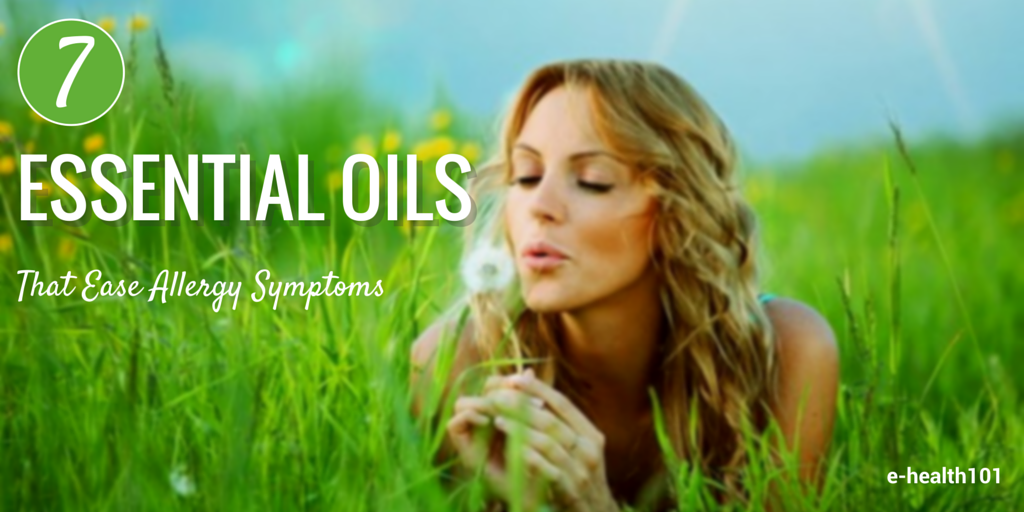
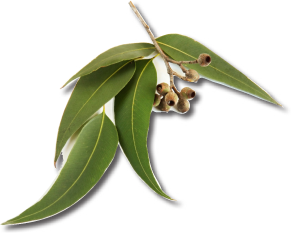 Eucalyptus
Eucalyptus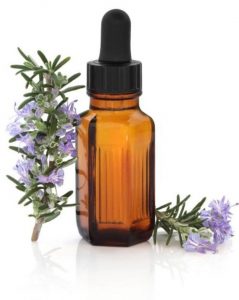
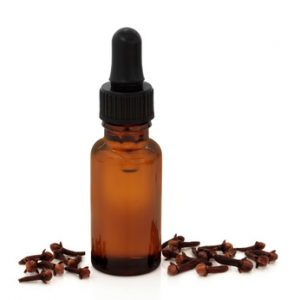 Clove
Clove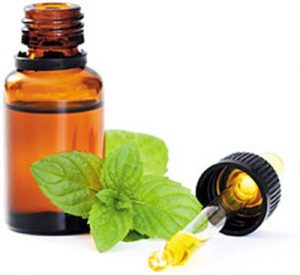 Peppermint
Peppermint Lemon
Lemon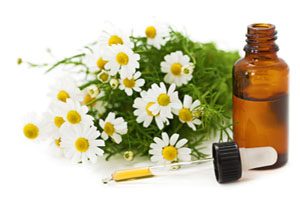 Roman Chamomile
Roman Chamomile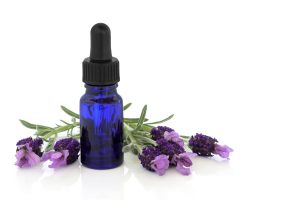 Lavender
Lavender